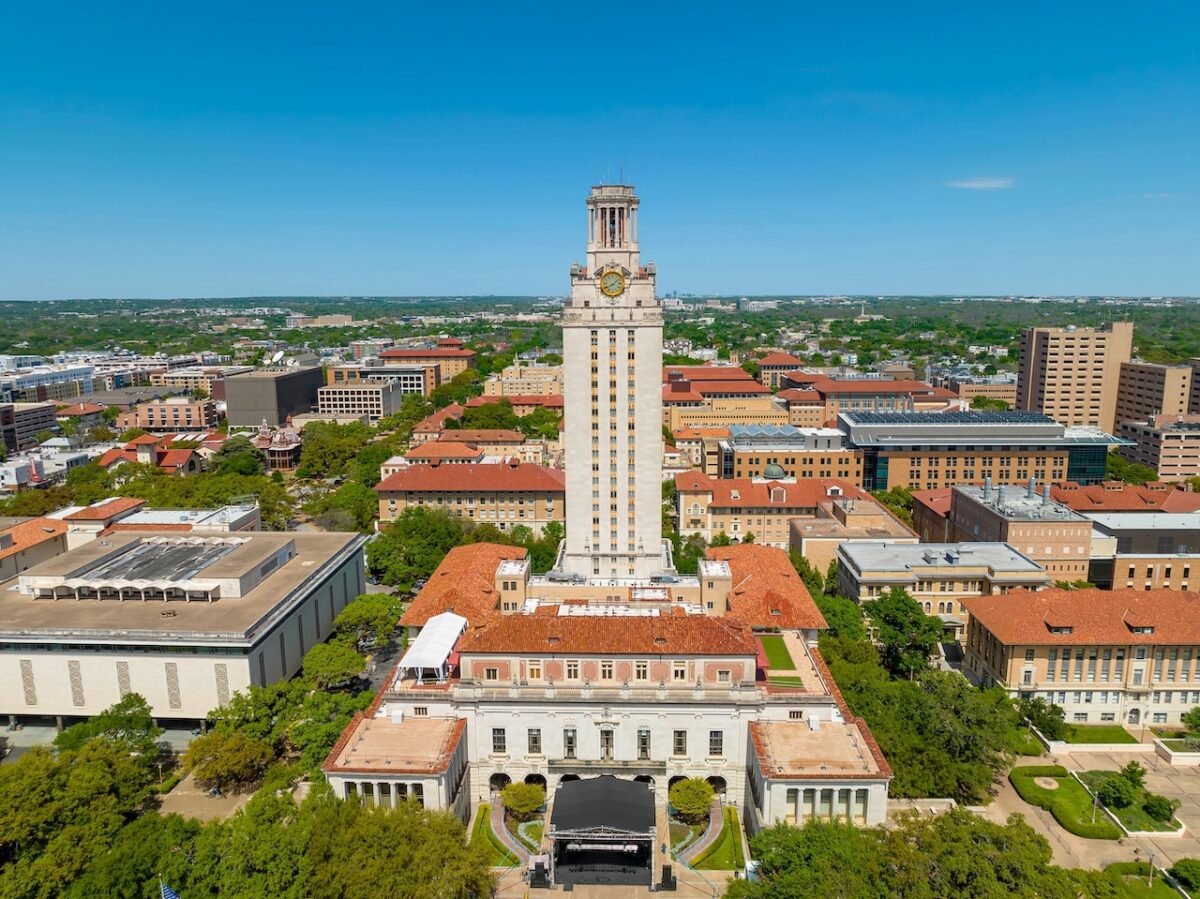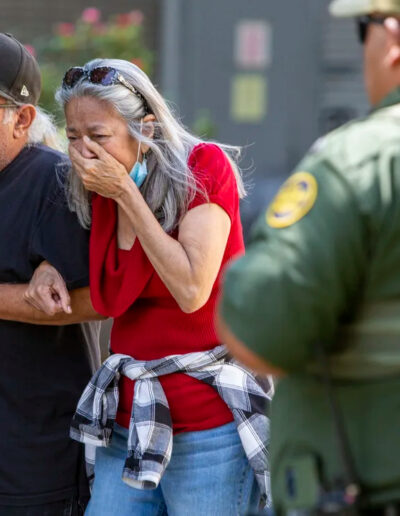
Singer Selena (Quintanilla) receives Grammy Award at The 36th Annual Grammy Awards on March 1, 1994 in New York, New York at Radio City Music Hall. (Photo by Larry Busacca/Getty Images)
From JFK to Selena, explore the stories of 10 influential figures who died in Texas, forever linking their legacies to the Lone Star State.
From presidents to pioneers, civil rights icons to silver screen stars, the Lone Star State has been the final chapter in many remarkable American lives. While Texas is celebrated for the larger-than-life personalities who called it home, it’s also the place where numerous luminaries drew their last breath—some under tragic circumstances, others after full lives that left lasting legacies. We’ve compiled a list of some of the most prominent figures who passed away in Texas, ranked loosely by their historical impact and enduring influence. Whether they were native Texans or found themselves here by chance, their stories have become forever entwined with the state’s rich tapestry.
John F. Kennedy (1917-1963)
John F. Kennedy served as the 35th president of the United States from 1961 until his assassination in 1963. A Democrat from Massachusetts, Kennedy was the youngest person ever elected president and the first Catholic to hold the office. His presidency was marked by significant events including the Cuban Missile Crisis, the Space Race, the building of the Berlin Wall, and the Civil Rights Movement. He established the Peace Corps and set the goal of landing on the Moon before the end of the 1960s.
Kennedy’s presidency and life came to a tragic end when he was assassinated on November 22, 1963, while riding in a presidential motorcade in Dallas, Texas. His death shocked the nation and world, with his state funeral drawing leaders from around the globe. Lee Harvey Oswald was arrested for the assassination but was himself killed by Jack Ruby two days later, leading to decades of conspiracy theories about Kennedy’s death. His legacy includes major legislative achievements passed after his death, including the Civil Rights Act of 1964.
Lyndon B. Johnson (1908-1973)
Lyndon B. Johnson became the 36th president following Kennedy’s assassination, serving from 1963 to 1969. His presidency was defined by his ambitious domestic agenda called the “Great Society,” which included landmark civil rights legislation, the creation of Medicare and Medicaid, and the War on Poverty. Johnson signed into law the Civil Rights Act of 1964 and the Voting Rights Act of 1965, though he famously predicted that signing the Civil Rights Act would cost Democrats the South for a generation.
Despite his domestic achievements, Johnson’s presidency became increasingly overshadowed by the Vietnam War. As American involvement in Vietnam escalated and casualties mounted, Johnson faced growing opposition and protests. This eventually led to his decision not to seek reelection in 1968. He retired to his Texas ranch and died in 1973, leaving a complex legacy of groundbreaking domestic achievements mixed with the controversial expansion of the Vietnam War.
Howard Hughes (1905-1976)
Howard Hughes was an American business magnate, aviator, engineer, and film producer who became one of the most influential and enigmatic figures of the 20th century. He inherited his family’s successful oil tool business and used his wealth to fund various ventures, including aviation innovations and Hollywood films. Hughes set multiple aviation records as a pilot and developed several aircrafts through his company Hughes Aircraft, including the infamous “Spruce Goose” flying boat.
In his later years, Hughes became increasingly reclusive and eccentric, suffering from obsessive-compulsive disorder and chronic pain from several plane crashes. He spent his final years living in hotels, avoiding public contact, and running his business empire from isolation. His death in 1976 led to a lengthy battle over his estate, which was eventually divided among various heirs. His legacy includes major contributions to aviation and film, as well as serving as a cautionary tale about the effects of wealth, fame, and mental illness.
Selena (1971-1995)
Selena Quintanilla-Pérez, known simply as Selena, was a Mexican-American singer who became one of the most celebrated Latin artists of the late 20th century. Often called the “Queen of Tejano Music,” she broke gender barriers in the male-dominated Tejano music scene and helped bring the genre into the mainstream. Starting her career as a child performing with her family band Selena y Los Dinos, she rose to prominence in the 1980s and early 1990s with hits like “Como la Flor” and “Amor Prohibido.”
Selena’s life was tragically cut short when she was murdered by Yolanda Saldívar, her friend and fan club president, on March 31, 1995, at the age of 23. Her death sparked widespread mourning in the Hispanic community and beyond. Her crossover English album “Dreaming of You” was released posthumously and debuted at number one on the Billboard 200, making her the first Latin artist to accomplish this feat. Her legacy continues to influence music and culture, and her life story has been portrayed in various media, including the 1997 biographical film starring Jennifer Lopez.
Sam Houston (1793-1863)
Sam Houston was a key figure in Texas history who served as the first and third president of the Republic of Texas and later as a U.S. Senator and governor of Texas. Earlier in his life, he had been governor of Tennessee and lived among the Cherokee. During the Texas Revolution, he led the Texian Army to victory over Mexican forces at the Battle of San Jacinto, securing Texas’s independence. This victory made him a hero to many Texans and launched his political career in the new republic.
Houston was a strong advocate for Texas joining the United States and helped achieve statehood in 1845. As Texas governor on the eve of the Civil War, he opposed secession and refused to swear loyalty to the Confederacy, leading to his removal from office. His legacy is honored throughout Texas, most notably in the city of Houston, which was named after him. He remains one of the most significant figures in Texas history, known for his military leadership, political service, and principled stand against secession despite overwhelming opposition.
Christopher Hitchens (1949-2011)
Christopher Hitchens emerged as one of the most influential public intellectuals of his time, evolving from a democratic socialist to a complex political figure who defied easy categorization. As one of the “four horsemen” of New Atheism, he became known for his sharp critiques of religion and authoritarian systems. His journalistic career flourished at The Nation and Vanity Fair, where he wrote incisive political commentary and cultural criticism. Hitchens authored numerous books including controversial works on Mother Teresa, Bill Clinton, and Henry Kissinger.
Hitchens faced his terminal diagnosis of esophageal cancer with characteristic intellectual honesty, documenting his experience in a series of essays. He maintained his atheist convictions throughout his illness, refusing what he called “deathbed conversion” attempts. He died in Houston on December 15, 2011, at age 62, leaving behind a legacy of fearless criticism and philosophical insight.
Davy Crockett (1786-1836)
From humble beginnings in East Tennessee, Davy Crockett would live to become an American folk hero. His reputation as a skilled hunter and captivating storyteller helped launch his political career, leading to his election to Congress. As a representative, he notably opposed President Andrew Jackson’s Indian Removal Act, demonstrating his willingness to stand against popular opinion.
After losing his congressional seat in 1835, Crockett joined the Texas Revolution and died at the Battle of the Alamo on March 6, 1836. The exact circumstances of his death remain disputed, with varying accounts of whether he died in battle or was executed after capture.
Ann Richards (1933-2006)
Ann Richards broke barriers as Texas’s second female governor, known for her quick wit and progressive politics. Beginning her career as a schoolteacher, she rose through local politics to become State Treasurer and gained national attention with her memorable keynote address at the 1988 Democratic National Convention. Her governorship from 1991 to 1995 marked a significant period for Democratic leadership in Texas.
After losing her re-election bid to George W. Bush in 1994, Richards remained active in public life until her death from esophageal cancer in 2006. Her legacy as the last Democratic governor of Texas (as of 2024) and her advocacy for women in politics continue to influence the Texas political landscape.
Mickey Mantle (1931-1995)
Mickey Mantle dominated baseball during his 18-year career with the New York Yankees. Despite chronic injuries, he achieved remarkable success, winning three MVP awards and seven World Series championships. His switch-hitting power and speed made him one of baseball’s greatest offensive threats, evidenced by his 536 career home runs and numerous World Series records.
Later in life, Mantle struggled with alcoholism, which affected both his marriage and his children. He found sobriety in his final year and dedicated himself to warning others about the dangers of alcohol abuse. He died from liver cancer in Dallas on August 13, 1995, at age 63.
Barbara Jordan (1936-1996)
Barbara Jordan broke multiple barriers as the first African American Texas Senator since Reconstruction and the first Southern African American woman in the U.S. House of Representatives. She gained national prominence during the Nixon impeachment hearings and made history as the first African American woman to deliver a Democratic National Convention keynote address in 1976.
Jordan’s later years were dedicated to education and immigration reform. She served as chair of the U.S. Commission on Immigration Reform and continued teaching until her death. She passed away on January 17, 1996, and became the first African American woman buried in the Texas State Cemetery.
This story was generated in part by AI and edited by The Courier DFW staff.
This article first appeared on Good Info News Wire and is republished here under a Creative Commons license.
READ MORE: The 11 deadliest natural disasters in Texas history




















